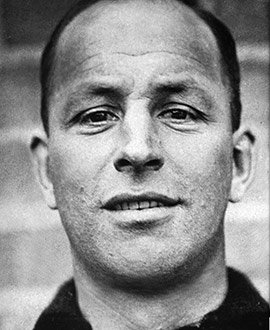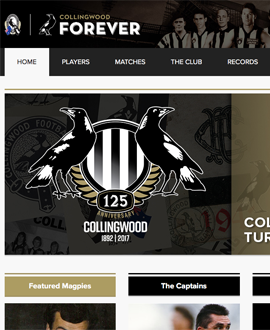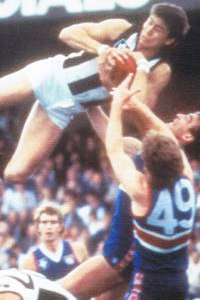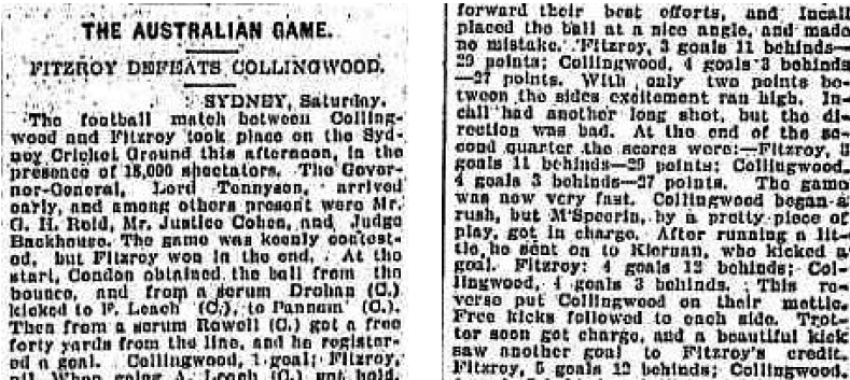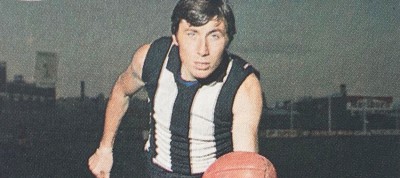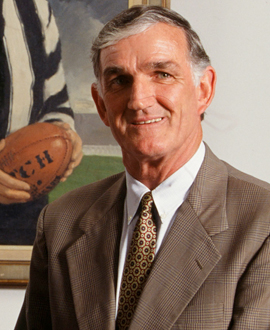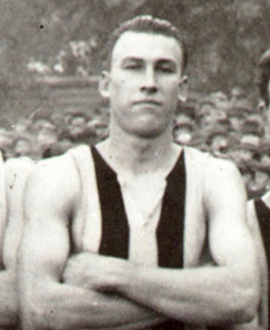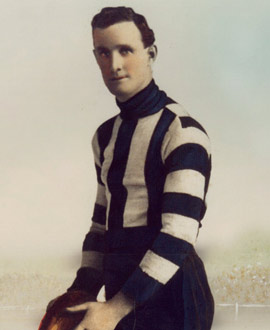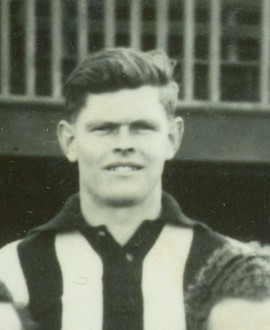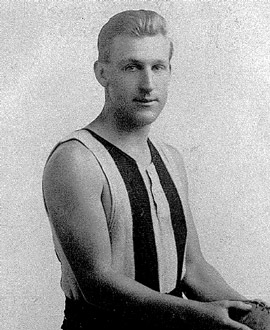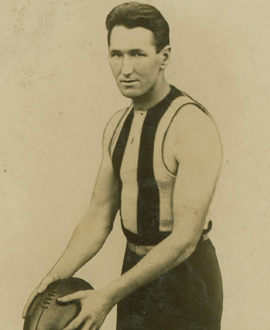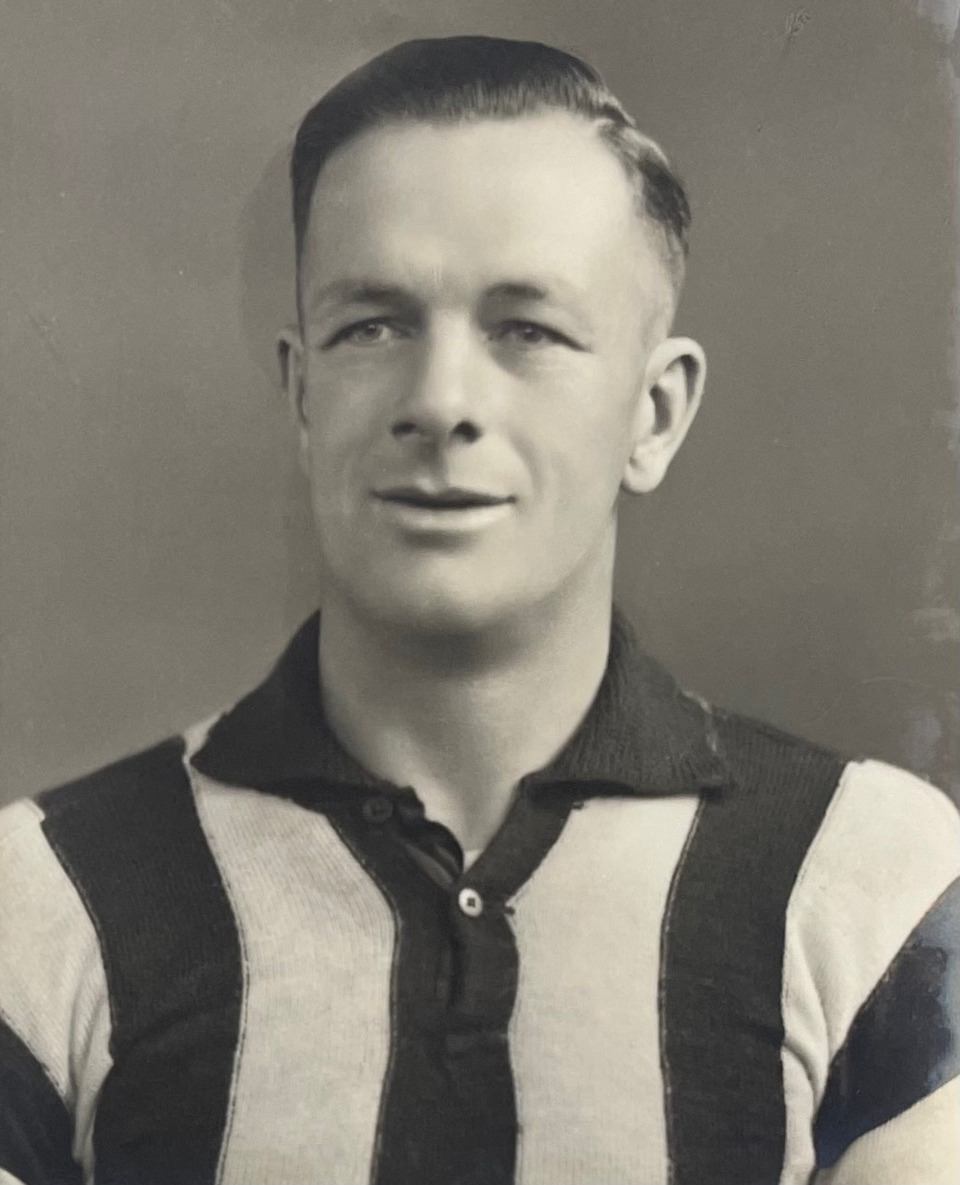By: Glenn McFarlane
THE 1927 season started with one of Collingwood's most contentious selection decisions; it ended with a premiership and the club's first Brownlow Medal.
Syd Coventry was one of the key reasons behind all of these occurrences.
The first came when Collingwood's captain Charlie Tyson was sensationally sacked by the club almost on the eve of the 1927 season. Incredibly, just seven months after leading the Magpies into a losing Grand Final, Tyson was not only replaced as skipper, but was also dumped from the club's playing list.
It gave rise to speculation that Tyson had "played dead" in the 1926 loss to Melbourne, though that was almost certainly wrong.
The reason for Tyson's shock departure had much more to do with the fact that Collingwood officials believed they had a better captain waiting in the wings. Coventry, who was Tyson's vice-captain, was the logical replacement.
By the end of the season, the decision would be more than justified, with Coventry playing a significant role in the first of Collingwood's four-in-a-row premierships, as well as winning the VFL's highest individual honour.
From the outset, Coventry made a massive impact on the season - both as an on-field contributor and as a leader.
In that first game, against Geelong, at Victoria Park, the Herald said he "led like a tiger", while 'Jumbo' Sharland of the Sporting Globe wrote: "Never have I seen a man display such indomitable spirit as did Syd Coventry ... he pulled down the ball almost every time he went up for it and seemed to be up in the air every other minute".
It was one of five games that Coventry was listed as Collingwood's best player, while in four others he was nominated as the club's second most influential player.
Coventry would end up polling a Brownlow Medal vote in seven games. In the first seven years of the award, umpires only cast one vote per game, to the footballer considered the best on the ground.
One of those matches that Coventry would likely have polled in was against South Melbourne, in Round 4.
He was knocked out in a head-on collision early in the game and was "carried off insensible". The Magpie fans in attendance feared he would not come back, leaving the team with only 17 players.
But, as the Sporting Globe detailed, "the great player rallied and a mighty cheer greeted his reappearance ... and strangely enough the Magpie star played much better after he had been hurt."
A stretch of big performances in the middle of the year included him being adjudged as the Magpies best in Round 11 against Melbourne, Round 12 against Geelong and Round 14 against Richmond.
In the game against the Cats, it was noted that he "played splendidly right through", while in the Tigers' match, "Syd Coventry stood out as the finest player in the match, the skipper did a tremendous amount of work, both back and following (in the ruck), and everything he did had the finish of an artist."
By that stage of the season the ruckman, who also spent some time in defence, had helped to lift Collingwood to the top of the ladder, making the Magpies a real chance of winning their first flag since 1919 – a full three years before he joined the club, and a year earlier than his brother Gordon Coventry came down from Diamond Creek.
His teammate Bruce Andrew once said: "We had a captain worthy of being a top coach ... it was a combination of Jock McHale outside the boundary line and Syd Coventry inside the boundary line."
In the middle of September, as Collingwood was preparing for its finals campaign, Coventry was announced as the winner of the fourth Brownlow Medal, which was the Magpies' first win in the award.
The meeting, three days after the last home-and-away round, saw the Collingwood skipper one vote clear of Carlton's Alec Duncan and Melbourne's Dick Taylor.
Only three other Magpies players polled that year – his brother, Gordon, with two votes and one each to Harry Chesswas and Joe Poulter.
The Referee would say: "The decision will be highly commended. For the past three or four seasons, Syd Coventry has been the outstanding footballer in Melbourne and the big merit in his play is that he always the ball, and the ball only, his objective."
The Herald described him as "a player of dogged determination, fearless, fair, good tempered and capable in the highest degree, whether following or in the last line of defence."
And Table Talk went further: "Syd Coventry, some time since being promoted to captain, is an ideal mixture of Napoleon and Nelson, with a dash of Caesar and Alexander the Great."
He was considered not only the best, but also the fairest, even if he would use his strength legally when it was required. One newspaper agreed, saying:
"Although his style of play was of that robust and vigorous type which everybody loved to see, he always played the game according to the rules, fairly and honourably."
Coventry was proud of his achievement, saying: "I feel proud in having won the medal and will always look upon it as a fine memento of my connection to the game."
He would not receive the award - the actual medal - until early the next season, but he knew just what it meant to his standing in the game.
His teammates were just as proud, with secretary George Connor writing on the club's bulletin board in the rooms at Victoria Park: "Brave, Syd. You're a credit to the club. Heartiest congratulations from your club mates."
Another reward would come on the first day of October, 1927, a bleak, wet and miserable day, when Coventry led his Collingwood team - the 'Machine', as they would become known - to the first of four successive flags.
Coventry would also win the inaugural Copeland Trophy, with the club’s annual report, released early the next year, saying he had been “a most brilliant and fearless and fair leader.”
THE 1927 COUNT
7 – Syd Coventry (Collingwood)
6 – Alex Duncan (Carlton), Dick Taylor (Melbourne)
5 – Edward ‘Carji’ Greeves (Geelong), Allan Geddes (Richmond)
